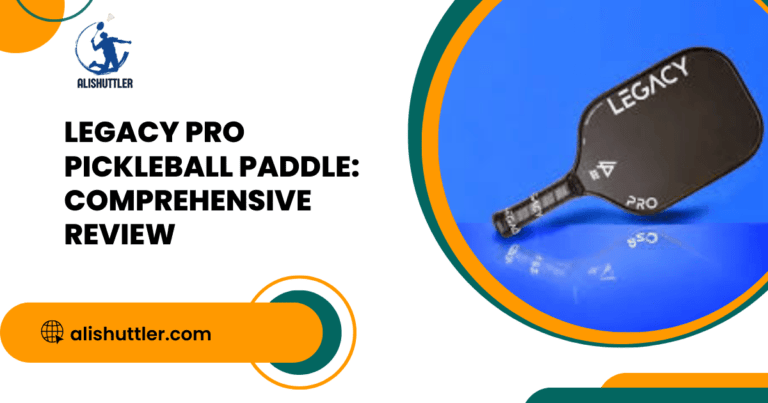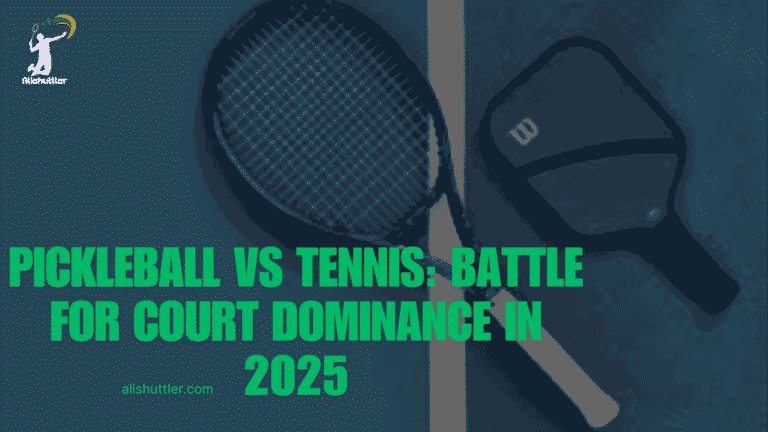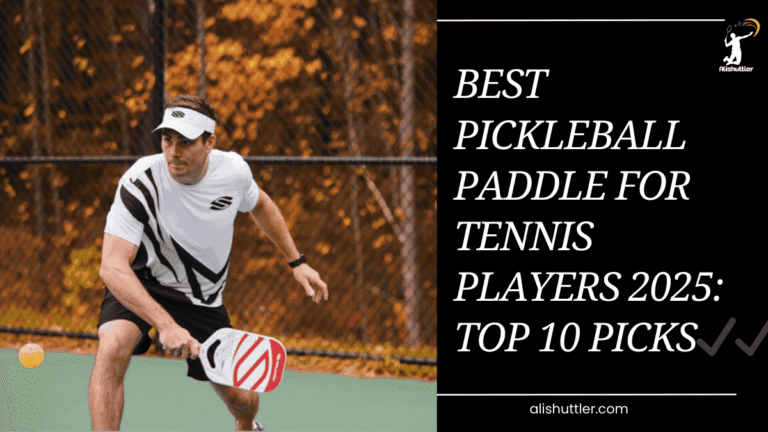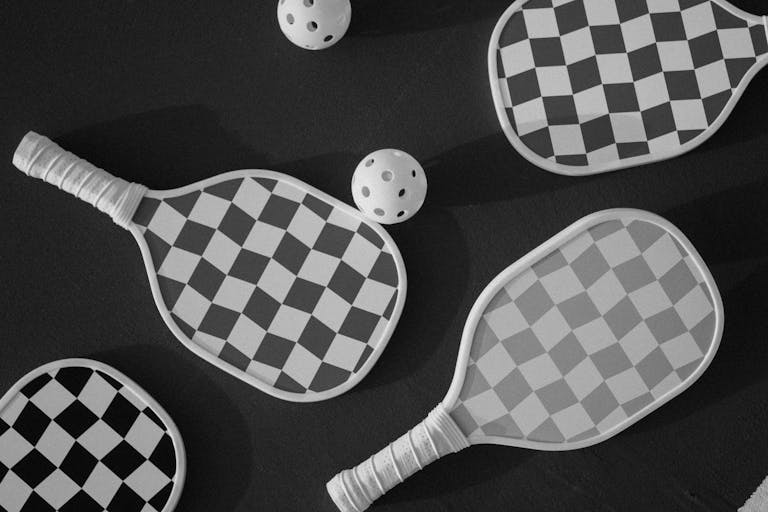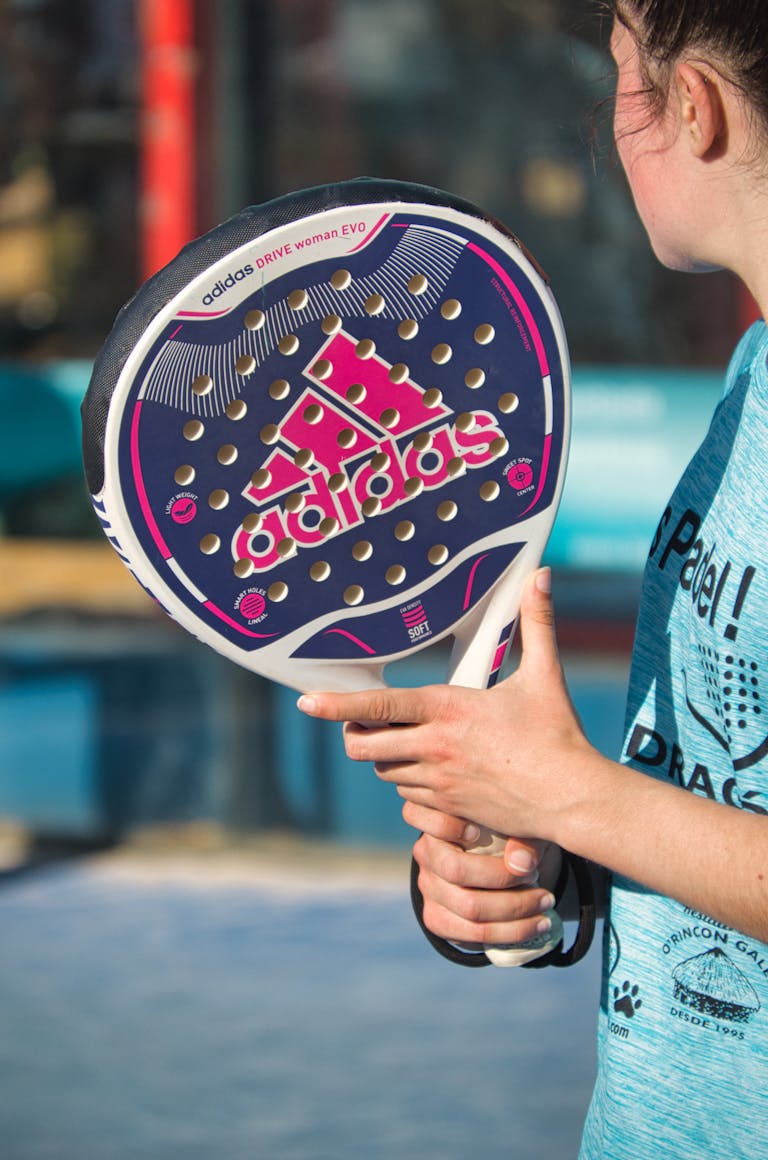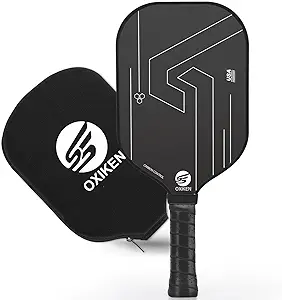Pickleball for seniors is a low-impact sport that combines components of tennis, badminton and table tennis. A lot of seniors pick it because it’s low-impact, intuitive, and fosters community.
It features a small court, lightweight paddles and a plastic ball and it has become a favorite among most fitness levels. With definitive guidelines and a gentler tempo, pickleball is perfect for seniors who want to live actively — without pushing their limits.
The main body contains additional benefits.
Why Pickleball?
Pickleball, a minnow-sized sport that combines elements of tennis, badminton, and ping-pong, is gaining popularity among pickleball enthusiasts. It features a solid paddle and a perforated plastic ball on a court roughly one-quarter the size of a tennis court. With easy-to-learn rules, the pace can be casual or frenetic, making it an ideal pickleball game for many seniors. This translates to being easier on joints and muscles compared to high-impact activities.
The smaller court results in reduced running, while the lighter ball means fewer aches in arms and shoulders. Consequently, pickleball can be played at just about any fitness level, making it a sustainable exercise option for anyone wanting to stay active without suffering.
Pickleball offers many benefits for seniors:
- Low risk of injury – because it is a non-strenuous game with gentle movements at a slower pace.
- Strengthens balance and coordination, which is crucial as we get older.
- Assists in developing and maintaining muscle strength, particularly in the legs and arms.
- Boosts heart health with steady movement and light cardio.
- Boosts mental acuity by requiring players to strategize shots and respond rapidly.
- Easy to learn, which helps new players feel welcome.
- Strengthens social connections by uniting individuals in doubles play.
- Can be played both indoors and outdoors, year-round.
- Needs only basic gear: paddle, ball, and comfortable clothes.
- Accommodates diverse fitness levels and physical boundaries.
The sport’s rising appeal with seniors is more than a fad. So many local and national clubs now have classes and matches just for seniors. This has given rise to vibrant communities where new and old friends converge, connect, and compete.
Some play for the workout and some for the social aspect. A morning match might finish with coffee together, or players may join weekly leagues that forge belonging. These social connections can reduce any loneliness or isolation – prevalent among seniors.
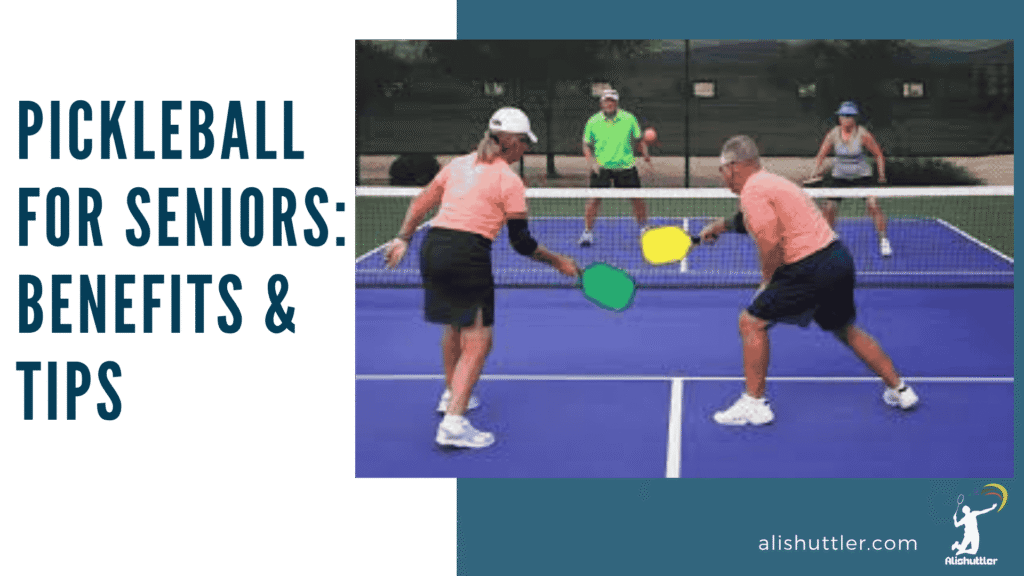
Accessibility is yet another reason pickleball attracts so many seniors. The courts are smaller, at approximately 13.4 meters by 6.1 meters, so there’s less ground to cover. This keeps our lower-stamina or joint-pain afflicted comrades – in the game, longer.
In summary, the growing pickleball community offers a fantastic way for seniors to engage in physical activity while enjoying the benefits of social interaction and maintaining their overall health.
Holistic Health Gains

Pickleball provides a blend of physical, mental and social advantages to seniors. This amazing sport is one of the easiest ways to cultivate good habits, stay physically active, and connect in a meaningful way. Play on a regular basis can help plug the gap as well, as far too many seniors are getting insufficient exercise, putting them at increased risk for chronic disease and isolation.
Opting for a sport such as pickleball aligns with a holistic health philosophy.
1. Stronger Heart
Pickleball is an effortless path to a heart-healthy senior life. It’s easy on the joints but still completely invigorating. The quick rallies and continuous movement make this an aerobic activity, similar to power walking or biking.
This consistent cardiac work aids in developing your cardiovascular stamina. Adding pickleball to your weekly schedule can reduce your risk of heart disease and stroke.
Another meta-analysis discovered that for adults over 60, staying active meant they developed less heart problems and some cancers. It doesn’t take hours of gameplay either—just a couple matches a week to see improvements in stamina and general heart health.
The bonus is that it’s fun and social, so motivation remains high.
2. Sharper Mind
Fast reflexes rule in pickleball. Players need to determine where to position their shots, respond to rapid returns and remember the score. These cognitive activities keep the brain nimble.
It’s not just about the game; the social side of it counts. Socializing with others decreases the chances of cognitive decline such as Alzheimer’s or dementia.
Research demonstrates that seniors who engage in groups stay sharper, both in memory and attention. The mental exercise from strategic planning and social play make pickleball a clever choice for cognitive fitness.
The meaning derived from acquiring, excelling, and contending in a controlled environment can alleviate the depression or loneliness.
3. Better Balance
All those side steps, quick pivots and reaching for the ball in pickleball make good balance training. Consistent play builds up muscles in the legs, core, and lower back.
This enhances balance and agility, essential components in fall prevention. Supplementing with balance exercises, such as heel-to-toe walks or one-legged stands, can help bolster gains made on the court.
We even hear from some of our seniors that better balance translates into more confidence on daily activities, from going for walks outside to lugging groceries.
4. Happier Mood
Pickleball releases endorphins, which can lift your mood. Even a quick game can increase happiness. Group play alleviates loneliness, a frequent companion of elderly adults.
Laughter and good-spirited competition foster a feeling of community. Exercise regularly, such as pickleball, is proven to reduce depression risk.
Mood gets a lift with every match.
5. Deeper Connections
Pickleball connects you – from neighborhood clubs to friendly face-offs. These bonds extend off the court. Group play provides seniors with a community of like-minded friends.
Shared victories and defeats foster confidence and encouragement. Feelings of community intensify with every meet-up or tournament.
Social ties formed by pickleball help mental health and confidence.
Getting Started
Pickleball – easy to learn, welcoming to seniors. For newcomers to the game, it assists to simplify things into several easy tasks. Begin by collecting the proper equipment, locate an appropriate court, read up on the regulations, and train with fundamental exercises.
Most everyone catches on to the game in no time, but establishing a robust base makes it a lot more fun.
The Right Gear
| Equipment | Purpose | Notes |
|---|---|---|
| Paddle | Striking the ball | Lightweight materials are best |
| Ball | Essential for play | Made of plastic, with holes |
| Court Shoes | Support and grip on court surface | Avoid running or street shoes |
| Athletic Apparel | Comfort and easy movement | Breathable fabrics recommended |
| Water Bottle | Staying hydrated | Especially important for seniors |
| Sweatbands | Absorb sweat; keep grip dry | Optional but useful |
Comfort is queen when it comes to apparel. Baggy gym t-shirts, shorts or track suits aid movement. Stay away from denim or starchy fabrics, which can limit your movement.
Opt for light colors when playing outside, particularly in hot regions. Appropriate court shoes avoid slips and maintain knee/save joints. A lot of indoor court shoes are softer soled, while outdoor pairs provide more grip and durability.
Stay away from running shoes on the court because they don’t have proper lateral support for pickleball! Optional items such as sweatbands and water bottles are not essential but can add to your comfort. Remaining hydrated and hands dry helps keep you locked in – particularly for the longer games.
The Right Court
| Court Type | Surface Material | Indoor/Outdoor | Typical Features |
|---|---|---|---|
| Outdoor | Asphalt, concrete | Outdoor | Exposed, weather-dependent |
| Indoor | Wood, rubber | Indoor | Controlled environment |
A regulation pickleball court is 13.4 x 6.1 meters. The non-volley zone, or ‘kitchen,’ is a 2.13 metre space on both sides of the net. It’s critical to know these zones to stay fault free.
Indoor courts provide consistent play, making them perfect in areas with harsh weather. Open courts are preferred for fair weather and usually found in parks. A lot of community centers have both.
Certain clubs provide collections and lessons for new players, so it’s simple to satisfy other people and find out the game.
The Right Rules
New players typically ask about match format. Pickleball is played as singles or, more commonly, doubles. Games are played to 11, but you have to win by two. Only the serve side points.
Scoring and regulations might seem tricky initially, but they soon become instinctual. The serve is underhand and may be struck as a drop serve (ball bounces first) or volley serve (hit from the hand before bouncing).
After the serve, both sides must allow the ball to bounce once before volleying. This ‘double bounce rule’ keeps rallies going and helps new players adjust. The non-volley zone, or “kitchen” prevents players from slamming the ball down at the nets.
Respecting this space is the key to safe play.
Build Skills
See free online tutorial videos for a walkthrough. Experiment with serve and return drills. Drills build muscle memory and confidence. Group lessons can often be found at local centers.
Schedule rest days and take breaks mid-match. This allows muscles and joints time to recuperate, which comes with added benefits as you age.
Play Safely
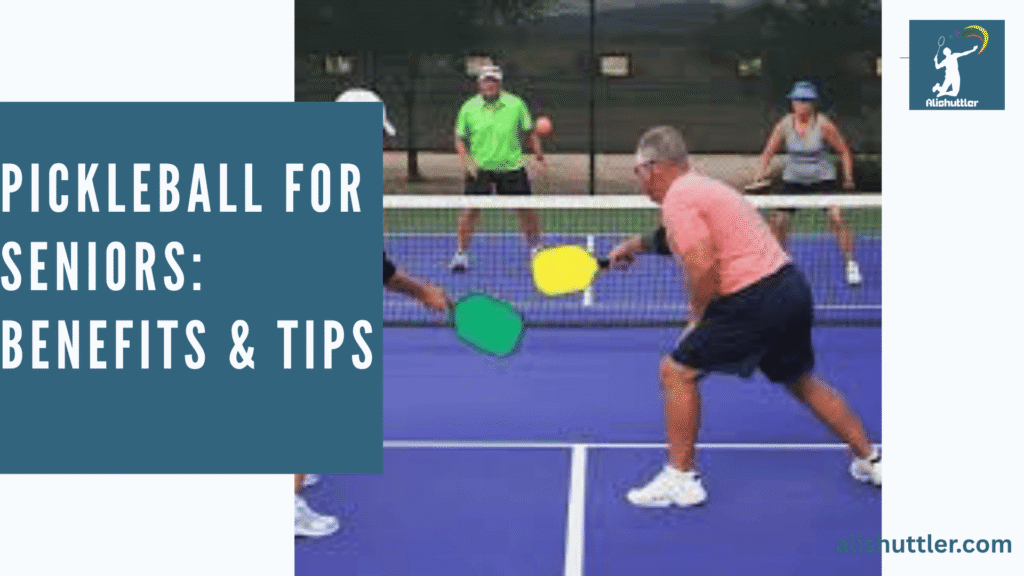
Pickleball is a great sport for seniors to have fun and stay active while participating in a regular pickleball game. However, safety should be a priority, as injuries like calf strain or tendonitis are common among players in their 50s. Good prep, safe play mindsets, and wise recovery actions can reduce risks and maintain the fun for all in the pickleball community.
Before You Play
Start by checking your gear: wear shoes with sturdy grip and ankle support, bring water, and pack any braces or supports you may need. Proceed to your warm-up — tramp along for 5-10 minutes to prepare the body and then stretch key groups such as calves, thighs and shoulders. Stretching is like allowing a car to ‘idle’ before you take off, it loosens up joints and muscles.
Hydrate before you grab your paddle, particularly if playing outside in the heat. If you have health concerns or old injuries, check in with your doctor before jumping into the game. A customized stretching and conditioning regimen can help you avoid a few typical injuries.
During The Game
Watch your room—watch out for balls at your feet, don’t back into players. Good footwork is making short fast steps, not big lunges and always bending the knees when reaching or pivoting. This protects your Achilles and knees from overuse.
Chat with your doubles partner as you call shots or yell warnings about near misses. Stop for water breaks every 20 minutes or sooner if you start to feel fatigued or lightheaded, pay attention to your body. Tiredness can cause injuries, so if you’re beginning to feel run down, don’t be afraid to take a breather.
After You Play
Cooling down is just as important as warming up. Engage in a few minutes of easy stretching — legs, arms and back — to assist muscles in recovery and keep joints supple. Eat a light snack – something with protein and complex carbs, like fruit and a handful of nuts, works great!
Reflect on your play: think about what went well and where you might want to improve next time, whether that’s your serve or your movement on the court. Pace yourself and stay active – light walks or easy cycling post-pickleball can help keep you loose and recovery quicker.
If pain persists or you experience swelling, consult a healthcare professional.
Beyond The Court
Pickleball is about a lot more than exercise; it serves as a great sport that opens doors for seniors to engage with others, pick up new skills, and discover a greater sense of meaning. The pickleball game is ageless, with worldwide tournaments that foster friendships spanning generations — a solid foundation for social and individual development.
Building Community
Signing up for a local pickleball club is an easy way to encounter like-minded people. Most clubs run weekly games so you’ll develop friendships and camaraderie with members on and off the court.
Friendships deepen in tournaments and competitions. These tournaments typically segregate players by age or ability so that all can participate and relish the action.
Pickleball has crossed generational divides, connecting people from ages 9 to 90. Players routinely exchange experiences, advice, and motivation, nurturing a warm and caring community. When they invite new members, which established players do, they make the community flourish and remain open.
Lifelong Learning
Clinics and workshops provide organized opportunities to get better, regardless of where you’re at. Numerous communities offer lessons ranging from beginner to advanced, frequently guided by experienced instructors.
Online resources — and they exist in spades, from videos to articles — make it easy to learn new techniques and stay current on developing strategies. Some seniors instead opt for advanced lessons, challenging themselves to refine different portions of their game.
Mentorship is prevalent, as veteran players mentor rookies and aid their development.
Renewed Purpose
- Try new shots to boost your skill
- Train for a local tournament
- Teach others the basics
- Aim for a personal best in each match
By setting goals, whether it be to win a match or just improve accuracy, you give your daily play more significance. Small triumphs — like mastering a new serve or squeezing out a tight match — bring delight to the experience.
Accepting new challenges in pickleball, whether it’s signing up for a mixed-age doubles event or volunteering at a tournament, keeps the sport engaging and fulfilling.
Giving Back
Most seniors enjoy volunteering at competitions. From assisting with scorekeeping to setting up beginner clinics, there are numerous avenues to become a part of it.
Volunteering creates a tighter-knit community. It provides seniors a reason to live outside of their own game.
Pickleball’s explosive growth, star-studded investments, and global community of players provide seniors numerous opportunities to participate and engage.
The Pickleball Mindset
It’s about how to think and act on the court, and how that can shape your outlook off the court, too. Instead, it focuses on the mental tactics that allow players to develop confidence, handle adversity, and extract maximum performance from every match. For seniors, participating in a pickleball game is about more than pursuing a victory. It’s about discovering meaning, thriving through the fluctuations, and prioritizing momentum over mastery.
Just as important to this mindset is a positive attitude toward learning. For most seniors, taking up a new sport can seem difficult or even overwhelming. The Pickleball Mindset challenges players to view errors as opportunities to improve — not excuses to quit. For instance, if you miss a shot or lose a point during a pickleball tournament, use that opportunity to retreat and inquire what you can improve for the future.
This develops a mindset in which failure is ritual and improvement ever within reach. In The Pickleball Mindset, Dayne Gingrich and Jill Martin reveal how even top players continue learning, regardless of age or ability.
Enjoyment is another key component. It’s fun because it’s fast, easy to learn, and packed with camaraderie. The mindset here is to play for pleasure, not points. Laughing together following a long rally, exchanging a high-five, or simply being on the court can boost your spirits and fuel your return.
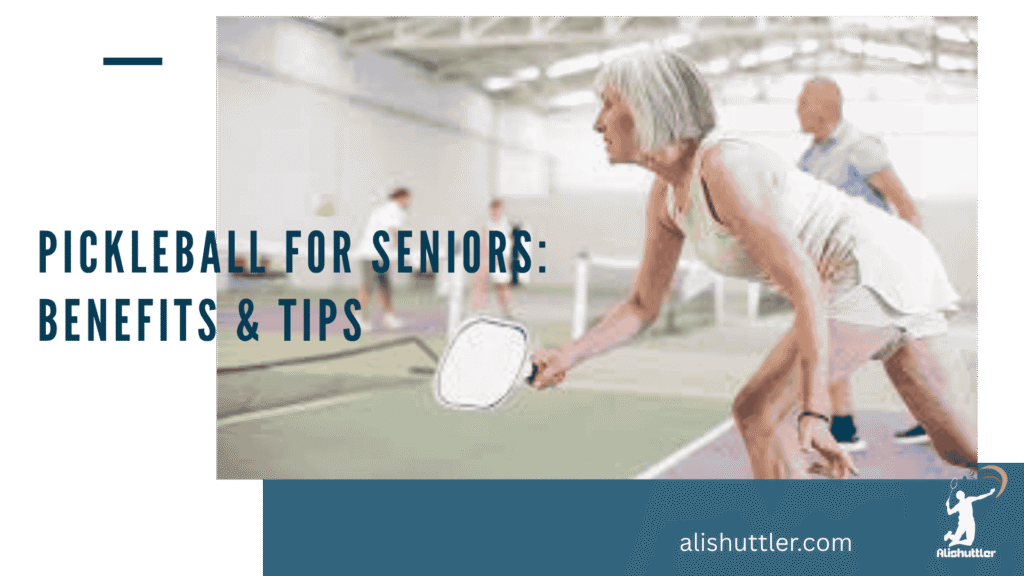
The enjoyment has you moving, and this is crucial both physically and mentally. Social connection plays a huge role in pickleball. A lot of seniors report that the highlight of the game is social — meeting new people and creating friendships within the pickleball community. The Pickleball Mindset prizes these connections.
A good partner means more than just good play. It’s about trust and respect and having each other’s backs on and off the court. Gingrich discusses how having the right partner can give you confidence and enable you to play your best.
An open mind is also essential. Every game is an opportunity to experiment, implement new strategies, and discover what works. The Pickleball Mindset guides players to embrace change and adjust when things get hard.
Unwind, Press, Spin – In their year-long journey, Jill Martin learns to face pressure moments with calm and to believe in her own skills. This mindset serves players both in tournaments and in life.
Conclusion
Pickleball provides seniors with an enjoyable path to increased activity, new friendships, and mental stimulation. It’s easy to learn, with minimal equipment and simple rules. Even brief matches provide great exercise and lift spirits. Courts embrace every ability, so nobody gets excluded.
A few play for the exercise, a few for the social high, but the bliss beats strong for nearly everyone. Pickleball gives you that real sense of drive and pride, on and off the court. To get in on the action, visit a nearby club or inquire about lessons in your area. Again, tons of players started late and now play per week. Sharing the joy can ignite a fresh routine and brighten your day.
Frequently Asked Questions
What makes pickleball a good sport for seniors?
Pickleball is a low-impact exercise that is simple to learn, making it an accessible sport for all ages. The smaller court reduces running, minimizing joint stress and injury risk.
Are there health benefits to playing pickleball for seniors?
Sure, the pickleball game promotes heart health, balance, and flexibility, making it a great sport for seniors to enhance overall health.
How can seniors start playing pickleball?
Begin by seeking out a nearby pickleball community center or club. Most offer newbie lessons, making it an accessible sport for all. Dress in comfortable athletic wear and borrow an ultra-lightweight paddle for beginners.
What safety tips should seniors follow when playing pickleball?
Warm up before your pickleball game and ensure you wear appropriate shoes with good traction. Staying hydrated is essential, and be mindful of your body for signs of exhaustion or injury.
Can pickleball help with mental health?
Yes, the pickleball game is sociable and collaborative, alleviating stress and elevating mood, making it excellent for mental health.
Do you need special equipment for pickleball?
All you need is a pickleball paddle, ball, and appropriate sports shoes for your regular pickleball game. Most clubs will loan you equipment as a newbie, allowing you to try before you buy.
How often should seniors play pickleball for health benefits?
Just two or three times a week of regular pickleball game participation is enough to see the physical and mental health benefits. Take breaks when necessary and talk to a doctor if in doubt.

